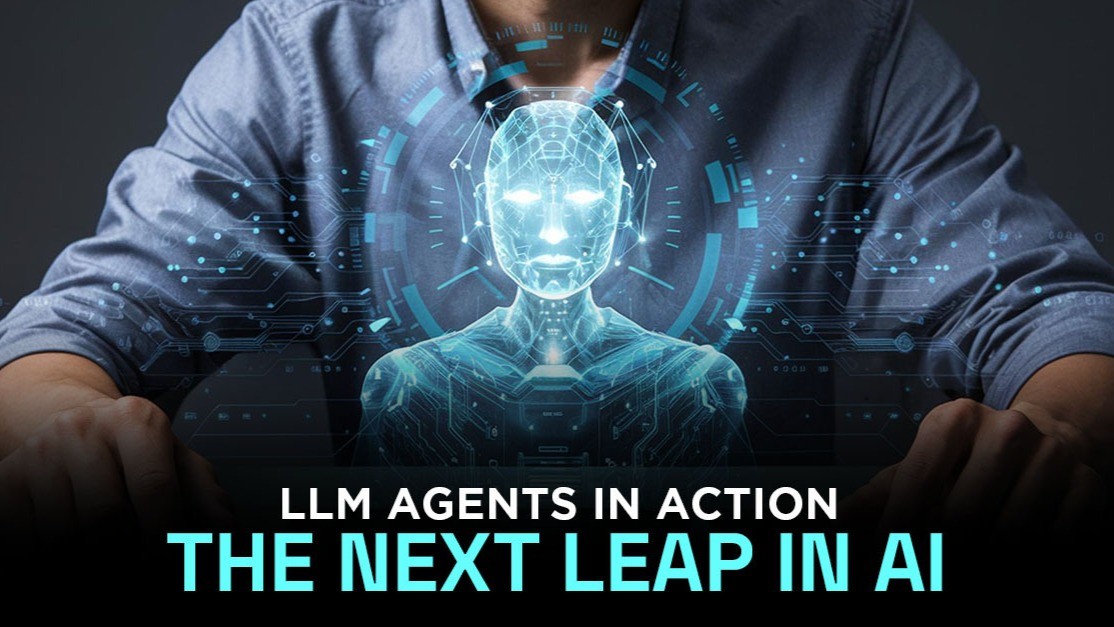
What Makes Agents Different
So, what sets agents apart from the chatbots we already know?
- Goal-driven: You give them an objective, not just a prompt.
- Autonomous: They can plan, prioritize, and adjust without constant human input.
- Tool-using: Agents don’t stop at generating text; they connect to external software, databases, or APIs to take real actions.
- Iterative: They learn from errors, retry tasks, and improve their outcomes over time.
This shift makes them uniquely positioned to reshape entire industries.
Finance: Automating Complex Decisions
In finance, LLM agents are already being used to:
- Analyze massive volumes of reports and filings in seconds.
- Trigger trades based on market signals.
- Run compliance checks across thousands of transactions without fatigue.
Where analysts once spent days combing through documents, agents now surface key insights in minutes, freeing professionals to focus on strategy, not paperwork.
Healthcare: Extending Human Capability
In healthcare, the power of autonomy could be transformative.
Agents can:
- Summarize patient histories from scattered medical records.
- Suggest treatment pathways based on the latest research.
- Coordinate schedules across doctors, labs, and pharmacies.
The point is not to replace doctors, but to give them superhuman support systems that handle the administrative load while they focus on care.
Logistics: Smarter Supply Chains
Global supply chains are notoriously complex. A single disruption can ripple across continents.
Here, LLM agents are stepping in to:
- Monitor live data streams (weather, port delays, customs).
- Reroute shipments dynamically.
- Forecast demand shifts and adjust inventory before shortages hit.
By acting continuously and autonomously, agents keep supply chains adaptive, a shift from reactive management to proactive resilience.
Software & Operations: AI Running AI
Perhaps the most fascinating use of agents is in software itself.
Developers are experimenting with “AI DevOps” agents that:
- Write code, test it, and deploy updates without a human push.
- Flag errors in real-time and even suggest fixes.
- Orchestrate workflows between different AI models to achieve broader tasks.
It’s AI, not just as software, but AI actively running software operations.
The Opportunities and Risks
The opportunities are huge, but so are the questions.
- Reliability: How do we make sure agents don’t go off track?
- Accountability: If an agent makes a mistake, who is responsible?
- Transparency: Can we audit the decisions made by autonomous systems?
These aren’t dealbreakers; they’re design challenges. The key is building systems that combine autonomy with oversight, and innovation with governance.
Why This Matters Now
The reason agents feel so urgent is simple: scale.
When you put autonomy into AI, you’re not just saving a few minutes. You’re creating systems that can operate continuously, across thousands of tasks, without burnout or bandwidth limits.
That’s not an incremental change. It’s a paradigm shift.
Closing Thought
We’re only at the beginning of the LLM agent era. But the early signs are clear: industries from finance to healthcare to logistics are already seeing workflows bend and reshape around autonomous AI.
The question isn’t whether agents will transform industries. It’s whether we’re ready to build the guardrails and strategies to harness them responsibly.
Because in the age of agents, the companies that thrive won’t be the ones that fear autonomy. They’ll be the ones that design with it, partner with it, and scale through it.


